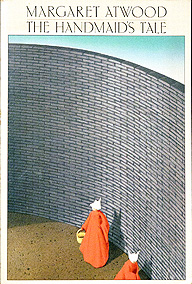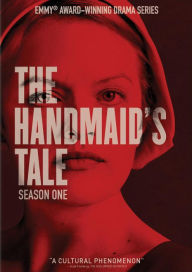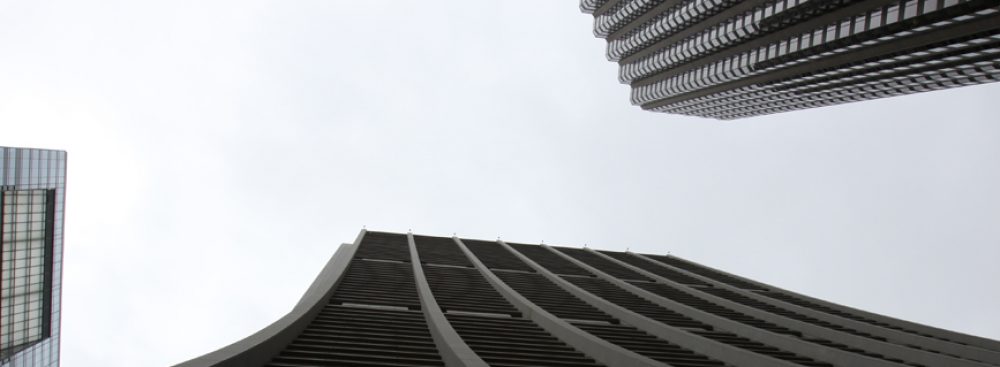
The novel

HULU – Season One
I read Margaret Atwood’s The Handmaid’s Tale shortly after the novel’s release in 1985; it was probably a year later, when the paperback version came out.
Now, I’ve read a lot of great modern novels since that time – Jane Hamilton’s A Map fo the World, Marilynne Robinson’s Housekeeping, Dan DeLillo’s White Noise and many others I could name if I just scanned a few of my bookcases.
But Atwood’s dystopian novel struck me at the time, and to this day, as something different – it has more in common with Viginia Woolf and Syvia Plath (and – of course – George Orwell) than Hamilton and the others.
The Handmaid’s Tale is on a different level, a timeless almost classic.
I’ll be honest, I don’t recall a lot about the book today (I read it more than thirty years ago); I don’t even recall if it ended on a hopeful or discordant note. I really don’t. But I remember that it really chilled me, the precise, sparse writing, and the description of a autocratic, evil world that was – sadly – believable.
Which brings me to the TV version of the novel, the first season of which I watched this weekend: Season Two is already out on DVD (and I’ve purchased same), but I kept holding off on watching, simply because the book was so good, and the praise for the HULU series made it seem like nothing could live up to the book/TV hype.
Well, I was wrong. The show is dark, disturbing, brilliantly cast and performed. Elisabeth Moss – Offred (Of Fred, whom she is the handmaiden to) – is brilliant. From Zoey Bartlet through Peggy Olson to Offred, Moss has really left her mark on the small screen.
The flashbacks are, to me, the most fascinating part of the show: How we got here. From a democracy to a totalitarian society where we keep fertile women for the elite to rape and impregnate, as most women have become infertile due to seemingly decades of pollution and corporations having five-week plans ($$), not five-year visions.
It’s troubling because it shows how this happens – just one small slip, and then another…rinse and repeat. That’s how Gilead (the fictional area [state? city? Unclear.]) changed.
And it’s troubling because of how the last couple of years the US has, little by little, been showing our country’s bad side (pulling out of treaties, xenophobia, child separation at the southern border, hate crimes and speech, approval of authoritarian leaders and governments, and so much more). Could Gilead happen here?
I used to think if you fell from grace it was more likely than not the result of one stupendous error, or else an unfortunate accident. I hadn’t learned that it can happen so gradually you don’t lose your stomach or hurt yourself in the landing. You don’t necessarily sense the motion. I’ve found it takes at least two and generally three things to alter the course of a life: You slip the truth once, and then again, and one more time, and there you are, feeling for a moment, that it was sudden, your arrival at the bottom of the heap.
— Jane Hamilton, A Map of the World (first graph)
Yes, Gilead could happen here – very much a long shot with all our checks and balances, but you never know…and never say “never.”
All in all, very well done. I just (re-)read the first four or so pages of the book, and they are dark – I’m guessing it’s a case of the book besting the movie/TV show. Might have to read it again.
